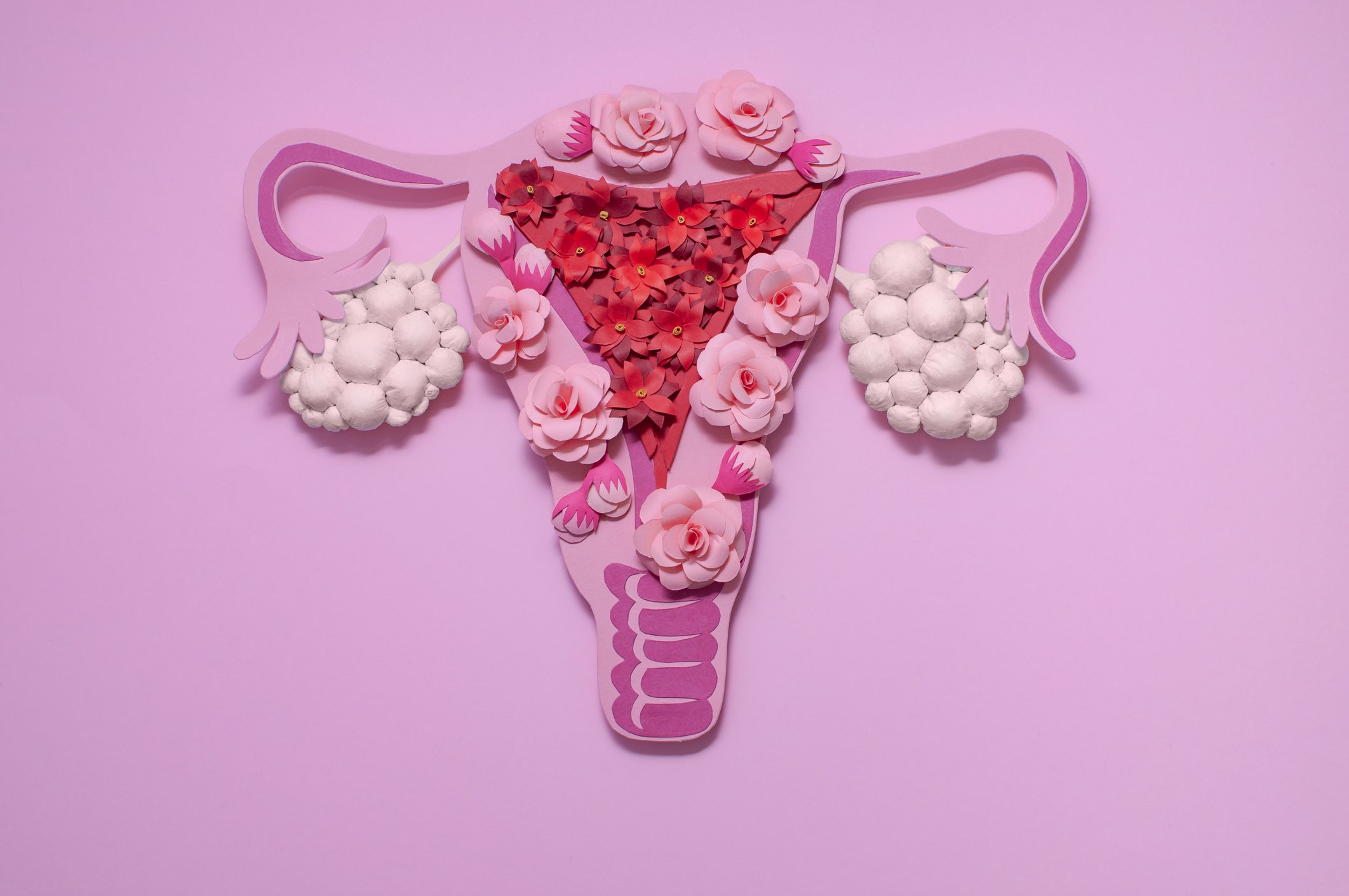At Juniper Family Health, our naturopathic physicians understand that even before perimenopause begins, many women in their late 30s notice shifts in their cycles, mood, energy, and fertility. While menopause may not be on the horizon just yet, the hormonal changes that kick-start the transition often begin during this time. Here's a guide rooted in expert insights from menopause associations, presented with our integrative approach in mind.
Read moreUnderstanding Premature Ovarian Insufficiency (POI) and Early Menopause - By Dr. Meghan van Drimmelen, ND
As a women’s health advocate and menopause provider, I would like to shed light on two conditions that can dramatically impact quality of life and health outcomes for women - premature ovarian insufficiency (POI) and early menopause. Both of these conditions can bring about challenges, both physically and emotionally, but with proper diagnosis and a comprehensive treatment approach, women can effectively manage their symptoms and preserve their overall health and well-being.
Read moreReviving Intimate Wellness: Understanding Genitourinary Health in Menopause and Perimenopause - By Dr. Meghan van Drimmelen, ND
Genitourinary syndrome of menopause (GSM) is a prevalent condition that can affect up to 84% of postmenopausal women, but its impact on women going through perimenopause is also significant. While often not discussed openly, GSM manifests with symptoms such as vaginal dryness, itching, burning, irritation, pain during sexual activities, frequent urination, and a heightened risk of urinary tract infections. The hormonal changes during perimenopause and menopause, particularly the decrease in estrogen levels, are key contributors to GSM.
Read moreThe Connection Between Menopause, Mood & Cognitive Function - By Dr. Meghan van Drimmelen, ND
While hot flashes and night sweats are commonly associated with menopause, many women also experience cognitive changes, mood swings, and brain fog during this period. In his article I will review the relationship between menopause, mood, and cognitive related symptoms, and will provide a step-by-step guide for optimizing brain health during this phase of life.
Read moreUnderstanding Perimenopause: Early vs. Late Signs and Symptoms - By Dr. Meghan van Drimmelen, ND
As a naturopathic doctor with a passion for women's health, I often encounter patients who are navigating the phase of life known as perimenopause. This transitional period can bring about various changes in a woman's body, with early and late perimenopause marking distinct stages in the process. To shed light on this topic, let's delve deeper into the signs and symptoms of each phase, as well as provide clarity on perimenopause, menopause, and postmenopause.
Read moreThe Future of Cervical Cancer Prevention: Embracing HPV Testing - By Dr. Chelsea Cole, ND
If you haven’t already heard, cervical cancer screening in BC will be changing to cervical self screening by January 29th, 2024. Instead of testing for cell abnormalities on the cervix (ie. pap testing), we will now test for the human papilloma virus (HPV), which is the virus that causes these abnormalities in the first place.
Read moreFrom Microbes to Motherhood: Exploring the Link Between the Uterine Microbiome and Fertility
The importance of a healthy uterine microbiome for optimizing fertility outcomes is a new and exciting area in the world of reproductive medicine. We once thought the uterus was a sterile organ, but we now know that it is colonized with bacteria, and recent research has shown that the type of bacteria present in the endometrium influences fertility outcomes. Let’s dive into the research shall we!
Read moreThe Power of HIIT: Improving PCOS Symptoms One Workout at a Time - By Dr. Chelsea Cole, ND
Have you heard about avoiding high intensity exercises if you have polycystic ovary syndrome (PCOS)? The thought is that these activities increase cortisol levels, which can negatively affect hormone balance. In fact, there is a lot of online discussion these days about modifying your movement depending on where you are in your menstrual cycle, for a variety of different hormonal concerns, including PCOS. While it makes sense to tune into your body, and honor what you need, sometimes this conversation is filled with misinformation and can become another barrier to regular movement. So, I want to take some time to talk about recent research into the benefits of high intensity interval training (HIIT) for those with PCOS.
Read moreNavigating Endometriosis with Food: Key Nutritional Strategies to Consider - By Dr. Meghan van Drimmelen, ND
Endometriosis is a condition characterized by the presence of endometrial tissues outside the uterine lining, causing symptoms such as pelvic pain, dysmenorrhea, and fertility complications. While there are a variety of treatment options available to ease symptoms of endometriosis, recent research suggests that dietary interventions may have a role in the prevention and management of this condition. In this article, we will explore the link between diet and endometriosis and discuss important nutritional strategies that may help improve symptoms and overall well-being.
Read moreThe Heart of the Matter: How Hormones Affect Women's Cardiovascular Health
For World Menopause Day this year, the International Menopause Society launched a campaign to raise awareness on the effects of hormones on cardiovascular health in women. Specifically, they highlighted the potential cardiovascular disease (CVD) risk associated with various reproductive milestones in a woman’s life. These milestones include menstrual cyclicity, adverse pregnancy outcomes, breast cancer treatments, and menopause itself. This is such an important topic in the sphere of women’s health, and something that I review with my patients regularly. Let’s dive into the details shall we!
Read moreThe Fertility Benefits of Inositol in Women with PCOS - By Dr. Meghan van Drimmelen, ND
Polycystic ovary syndrome (PCOS) is a hormonal disorder that affects many women of reproductive age. In this blog article, Dr. Meghan van Drimmelen reviews how inositol naturally works in the body, and the evidence to support its use for improving fertility outcomes in women with PCOS.
Read more3 Nutrients Worth Testing for Fertility - By Dr. Meghan van Drimmelen, ND
When you see a naturopathic doctor for preconception and fertility support, you will be offered a laboratory panel that looks at baseline hormone and nutrient levels. This blog article is going to review the top 3 nutrients worth testing for your reproductive success.
Read moreFoundational Fertility Supplements for the Preconception Period - By Dr. Meghan van Drimmelen, ND
Preparing your body for a healthy pregnancy starts in the preconception period, 3 months prior to conception. This is the time when the oocytes are maturing, and are particularly vulnerable to nutritional and environmental stressors. During the preconception period, naturopathic doctors recommend targeted lifestyle enhancements and fertility supplements to help improve your reproductive success.
Read moreGetting to Know Your Menstrual Cycle: Emergency Contraception - By Dr. Chelsea Cole, ND
Understanding contraception, including emergency contraception, is an important part of sexual wellbeing. Learn more about your options in Dr. Chelsea Cole’s newest blog article (…)
Read moreJuniper News & Health Resources - Fall Edition
Juniper news, fall nutrition and recipe inspiration, World Menopause Month, and more (…)
Read moreGetting to Know Your Menstrual Cycle: Ovulation - By Dr Chelsea Cole, ND
Learn why ovulation is important beyond fertility, common causes of anovulation, and how you can determine whether or not you are ovulating (…)
Read moreGetting to Know Your Menstrual Cycle: The 3 Phases - By Dr. Chelsea Cole, ND
Learn all about the 3 phases of the menstrual cycle and what hormones govern them, in Dr. Chelsea Cole’s newest blog article (…)
Read moreHow To Reduce Toxin Exposure To Support Hormone Health - Dr. Courtenay Boer, ND
It’s no secret that our environment can affect our health. Factors are diverse, from the quality of the air we breathe, to the food we eat, to the clothes we wear and beyond. Environmental toxins are ubiquitous in our world and they have significant consequences for health and hormones. Many of these toxins have been found to have endocrine-disrupting properties, so we label them as endocrine-disrupting chemicals or EDCs. Some of these EDCs have been identified as xenoestrogens, which means they are exogenous (environmental) chemical compounds that mimic estrogen in the body and can modulate estrogenic activity (…)
Read moreGetting to Know Your Menstrual Cycle: Infrequent or Absent Cycles - Dr. Chelsea Cole, ND
While menstruating can be a difficult, and sometimes inconvenient, monthly experience, it is still concerning when a menstrual cycle is missed. Outside of pregnancy, perimenopause/menopause, or some hormonal intrauterine devices (IUD), it is not normal to have infrequent or absent menstrual cycles. Learn all about underlying causes, and laboratory testing for irregular or absent menstrual cycles in Dr. Chelsea Cole’s newest blog article (…)
Read moreWomen's Health Medicine Cabinet - By Dr. Chelsea Cole, ND
I like my medicine cabinet to be found in my kitchen cupboards, and on a shelf laden with botanicals for everything from a cold to a sleepless night. While there are many folk remedies to be found in books and online, I do like to go a step further and research the evidence behind nature’s remedies. In this way, I feel confident in what I am choosing to keep on hand (…)
Read more



















